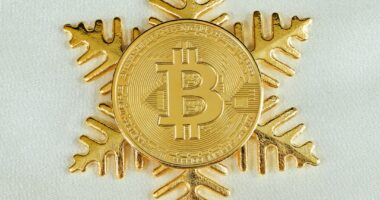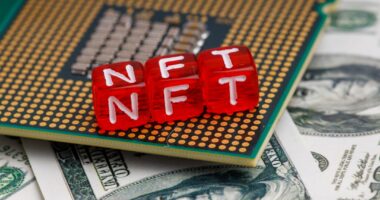Non-fungible tokens (NFTs) are unique digital assets that represent ownership or authenticity of specific items or content, such as artwork, music, videos, and social media posts. Unlike fungible cryptocurrencies like Bitcoin or Ethereum, NFTs are non-interchangeable and have distinct values. They are typically created using blockchain technology, which ensures secure and immutable ownership records.
NFTs have gained significant traction in the art world, enabling artists to tokenize and sell their work as unique digital assets. This innovation has created new monetization opportunities for digital creators. The music industry has also adopted NFTs, allowing musicians to sell exclusive rights to their songs or albums.
The potential applications of NFTs extend beyond art and entertainment, encompassing areas such as gaming, virtual real estate, and identity verification. As NFT technology continues to develop, its potential use cases are expanding. The unique properties of NFTs make them suitable for various applications where proof of ownership, authenticity, or uniqueness is required in the digital realm.
This technology is still evolving, and its full impact on various industries and digital interactions remains to be seen.
Key Takeaways
- NFTs are unique digital assets that are stored on a blockchain, providing proof of ownership and authenticity.
- NFTs have potential uses in art, music, gaming, and even real estate, allowing creators to monetize their work and engage with fans in new ways.
- The environmental impact of NFTs, particularly in terms of energy consumption, has raised ethical concerns and sparked debates about sustainability.
- Navigating the legal and copyright issues of NFTs requires careful consideration of intellectual property rights and ownership of digital assets.
- Investing in NFTs can be lucrative, but it also comes with risks such as volatility and potential for fraud, making it important for investors to conduct thorough research and due diligence.
Exploring the Potential Uses of NFTs
Revolutionizing the Art World
In the art world, NFTs have revolutionized the way digital art is bought and sold, providing a new revenue stream for artists and allowing collectors to own unique pieces of digital artwork.
Impact on Entertainment and Gaming
Musicians and other content creators have also embraced NFTs as a way to monetize their work and engage with their fan base in innovative ways. NFTs have also made waves in the gaming industry, where they can be used to buy, sell, and trade in-game assets, as well as to prove ownership of rare items.
Disrupting Industries Beyond Entertainment
Beyond art, music, and gaming, NFTs have the potential to disrupt industries such as real estate, ticketing, and identity verification. In real estate, NFTs can be used to represent ownership of virtual properties in virtual worlds or even physical properties in the real world. In ticketing, NFTs can prevent fraud and scalping by providing a secure and traceable way to verify ownership of event tickets. Additionally, NFTs can be used for identity verification, allowing individuals to prove their identity and ownership of digital assets in a secure and decentralized manner. As the technology continues to mature, the potential uses of NFTs will only continue to expand.
The Ethical Dilemma of NFTs: Environmental Impact

While NFTs have opened up new opportunities for creators and collectors, they have also raised concerns about their environmental impact. The process of creating and trading NFTs requires a significant amount of computational power, which in turn consumes a large amount of energy. This has led to criticism of NFTs for their contribution to carbon emissions and their potential negative impact on the environment.
The most common method for creating and trading NFTs is through the Ethereum blockchain, which relies on a consensus mechanism called proof of work. This requires miners to solve complex mathematical puzzles in order to validate transactions and secure the network, consuming a substantial amount of electricity in the process. In response to these concerns, there has been a growing movement within the NFT community to explore alternative methods for creating and trading NFTs that are more environmentally friendly.
Some platforms have begun to explore the use of alternative blockchains that rely on more energy-efficient consensus mechanisms, such as proof of stake or proof of authority. Additionally, there has been a push for greater transparency and accountability in the energy consumption of NFTs, with some platforms committing to offsetting their carbon footprint or donating a portion of their proceeds to environmental causes. As the ethical dilemma of NFTs continues to be debated, it is clear that finding sustainable solutions will be crucial for the long-term viability of the technology.
Navigating the Legal and Copyright Issues of NFTs
The rise of NFTs has brought about a host of legal and copyright issues that need to be navigated by creators, collectors, and platforms alike. One of the primary concerns is ensuring that creators are fairly compensated for their work when it is tokenized and sold as an NFT. This requires a clear understanding of intellectual property rights and copyright law, as well as the implementation of smart contracts that govern the royalties and resale rights associated with an NFT.
Additionally, there is the issue of verifying the authenticity and provenance of digital assets that are tokenized as NFTs, as well as ensuring that they do not infringe on the rights of others. Another legal consideration is the potential for fraud and scams within the NFT space. As with any emerging technology, there is a risk of bad actors taking advantage of the hype surrounding NFTs to deceive or defraud unsuspecting individuals.
This has led to calls for greater regulation and consumer protection measures to safeguard against fraudulent activity within the NFT market. Furthermore, there is also the question of jurisdictional issues when it comes to resolving disputes related to NFTs, particularly in cases where multiple parties from different countries are involved. As NFTs continue to gain traction, it will be essential for legal frameworks to evolve in order to provide clarity and protection for all stakeholders involved.
Investing in NFTs: Risks and Rewards
As with any investment opportunity, investing in NFTs comes with its own set of risks and rewards that should be carefully considered. On the one hand, NFTs have proven to be a lucrative investment for some early adopters, with certain digital artworks selling for millions of dollars and providing substantial returns for their creators and collectors. Additionally, NFTs have the potential to democratize access to investment opportunities in art, music, and other creative industries, allowing individuals to support their favorite artists while potentially reaping financial rewards in the future.
However, there are also significant risks associated with investing in NFTs that should not be overlooked. The market for NFTs is still relatively young and volatile, with prices fluctuating dramatically based on trends and speculation. This means that there is a risk of overpaying for an NFT or being unable to sell it for a profit in the future.
Furthermore, there is also the risk of investing in fraudulent or low-quality NFTs that do not hold their value over time. It is crucial for investors to conduct thorough due diligence before purchasing an NFT and to be mindful of their own risk tolerance and investment goals. As with any investment decision, it is important to approach investing in NFTs with caution and a long-term perspective.
The Future of NFTs: Trends and Innovations

Immersive Experiences with NFTs
One emerging trend is the use of NFTs in virtual reality (VR) and augmented reality (AR) experiences, where they can be used to represent unique digital assets within immersive environments. This opens up new possibilities for creators to showcase their work in interactive ways and for collectors to engage with digital art in novel ways.
Fractional Ownership and DeFi Integration
Additionally, there is growing interest in using NFTs for fractional ownership of high-value assets, such as real estate or rare collectibles, allowing multiple individuals to own a stake in an asset through tokenization. Another area of innovation is the integration of NFTs with decentralized finance (DeFi) applications, where they can be used as collateral for loans or as part of complex financial instruments. This has the potential to unlock new liquidity for creators and collectors while also expanding the utility of NFTs beyond simple ownership rights.
Scalability and Sustainability
Furthermore, there is ongoing research into improving the scalability and sustainability of NFTs through the use of layer 2 solutions and alternative blockchains that offer lower fees and energy consumption. As technology continues to evolve, it is likely that we will see even more creative applications for NFTs that have yet to be imagined.
Responsible NFT Ownership and Usage
As NFTs continue to gain traction, it is essential for individuals to approach their ownership and usage of NFTs responsibly. This includes being mindful of the environmental impact of creating and trading NFTs and seeking out platforms that prioritize sustainability and transparency in their operations. Additionally, it is important for creators to consider the long-term implications of tokenizing their work as an NFT, including how it may affect their relationship with their audience and their ability to control the distribution of their work.
For collectors, responsible ownership means conducting thorough due diligence before purchasing an NFT and being mindful of the potential risks associated with investing in digital assets. It also means respecting the rights of creators and other stakeholders within the NFT ecosystem and advocating for greater transparency and ethical practices within the industry. Ultimately, responsible ownership and usage of NFTs requires a thoughtful approach that takes into account not only the potential financial rewards but also the broader ethical considerations surrounding this emerging technology.
In conclusion, NFTs have emerged as a groundbreaking technology with far-reaching implications across various industries. While they offer new opportunities for creators and collectors alike, they also present ethical dilemmas related to their environmental impact and legal considerations regarding copyright issues. As investors navigate the risks and rewards associated with investing in NFTs, it is crucial for individuals to approach their ownership and usage responsibly while keeping an eye on future trends and innovations within this rapidly evolving space.
FAQs
What is an NFT?
An NFT, or non-fungible token, is a digital asset that represents ownership or proof of authenticity of a unique item or piece of content, such as artwork, music, videos, or collectibles, using blockchain technology.
How do you buy an NFT?
To buy an NFT, you typically need to use a cryptocurrency wallet and connect it to an NFT marketplace or platform that supports the specific type of NFT you want to purchase. You can then bid on or buy the NFT using cryptocurrency.
What can you do with an NFT after you buy it?
After purchasing an NFT, you can choose to hold onto it as an investment, resell it on an NFT marketplace, or display it in a digital collection. Some NFTs also come with additional benefits or access to exclusive content or experiences.
Are there any risks associated with buying or owning NFTs?
Yes, there are several risks associated with NFTs, including price volatility, potential for fraud or scams, and legal or copyright issues related to the ownership and distribution of digital content. It’s important to do thorough research and understand the risks before buying or owning NFTs.
What are some potential future uses for NFTs?
In addition to art and collectibles, NFTs have the potential to be used for a wide range of applications, including digital identity verification, virtual real estate, in-game items and assets, and tokenizing real-world assets such as real estate or intellectual property.





